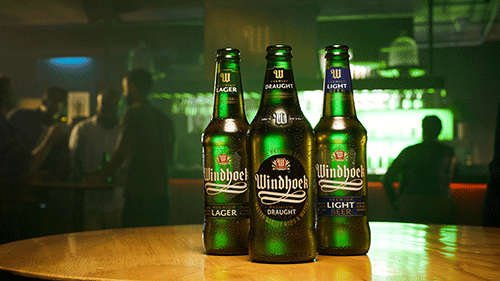Namibia Breweries Limited (NBL) has managed a rebounded revenue of 10.6% to N$1.5 billion for the year ended 31 December 2021. This is after the company suffered a revenue drop of 18.5% for December 2020 due to Covid-19 related restrictions, coupled with alcohol bans in Namibia and South Africa.
Announcing the results last week, NBL’s Managing Director (MD) Marco Wenk said overall volumes increased by 9.2%, predominantly due to production volumes sent to South Africa. Namibian beer volumes declined by 7.3% due to Covid-19 waves, which created a restricted trading environment during the period of July/August 2021, while significant swings in volume demand were experienced towards the end of 2021.
“Festive season volumes were muted, with consumer trends still showing healthy demand for higher alcoholic beverages while the mainstream segment saw intense price competition, in addition to pervasive economic pressures. South African beer volumes returned to pre-Covid levels, with lively demand for Windhoek and Heineken in the premium segment,” he observed.
The increase in revenue was mainly due to 99.9% growth in NBL production volumes sent to South Africa, and royalty income growth from Heineken SA. The latter increased by 27.3% to N$71 million, whereas the equity loss from associate turned positive, delivering N$31 million equity income for the period.
Wenk said NBL’s share from associates tuned positive, delivering N$31 million equity income for the period. Also, the group’s board declared an interim dividend for the period under review, in accordance with conditions of the potential Heineken SA disposal transaction. In the event of this not being finally concluded, the NBL board will revisit this decision.
The potential Heineken SA disposal transaction and the potential acquisition of Distell Namibia are, without doubt, opportunities to unlock significant value for NBL shareholders and other stakeholders. NBL’s priority for the rest of the financial year is to drive sales volumes through a more visible trade strategy as consumers gain confidence and start enjoying more social interaction.
Meanwhile, Tanzania remains NBL’s biggest export market, although as with most export markets, sales were challenged by logistical hurdles.
The NBL MD stated that for the period under review, they experienced challenges such as changing trends in Namibian consumer consumption preferences, consumer disposable income being under pressure, and export markets with various logistical challenges.
Wenk added that NBL is well-positioned to meet a volatile demand curve in production volumes for South Africa, where their Windhoek Lager brand has significant opportunity for growth.
“NBL will continue to focus on further growing our brands both locally and beyond our borders while innovating into new liquids, based on consumer preferences and demand. Although trading restrictions will continue to impact our business, NBL continues to be resilient and remains committed to finding every growth opportunity possible,” he emphasised.


